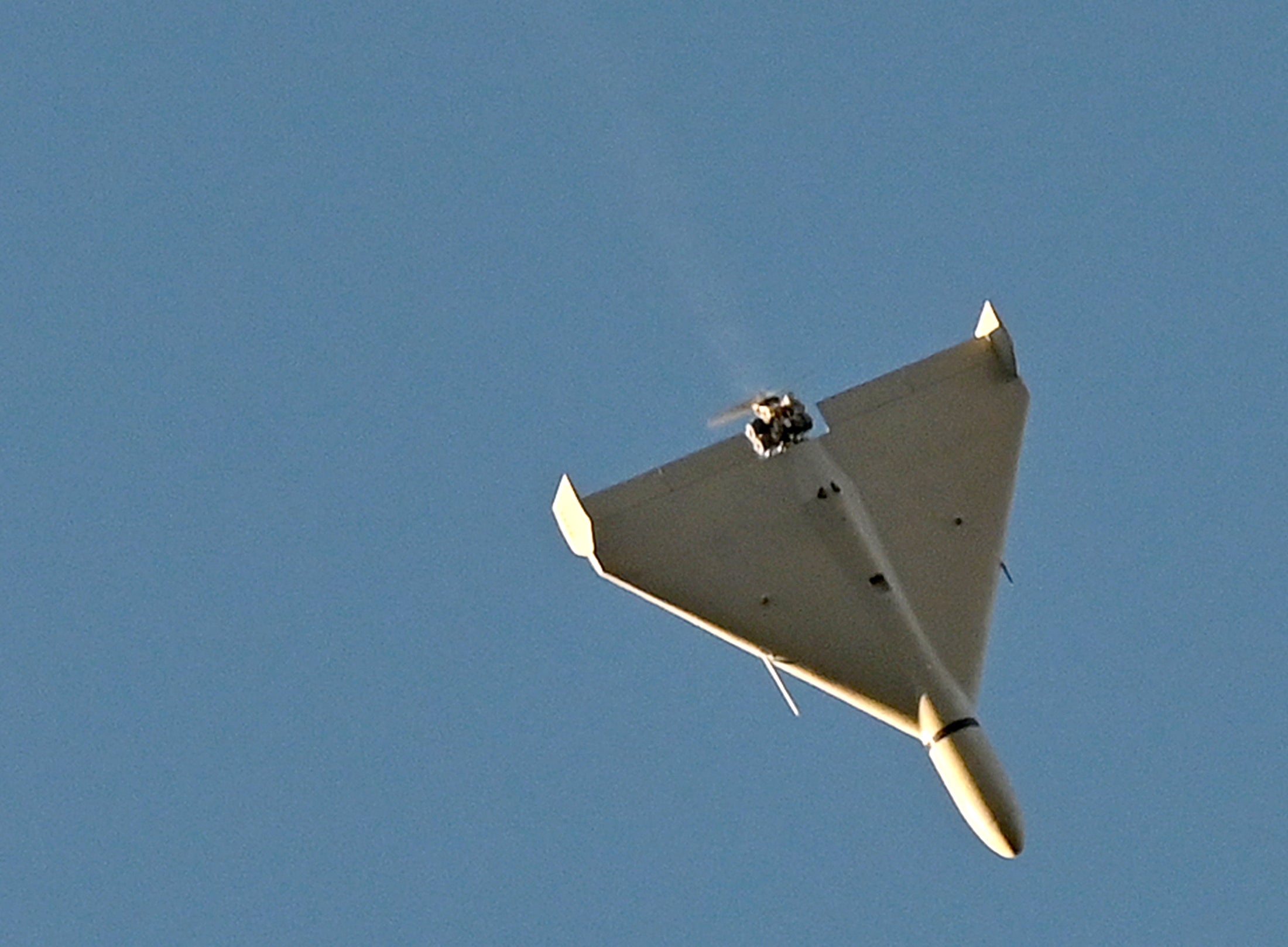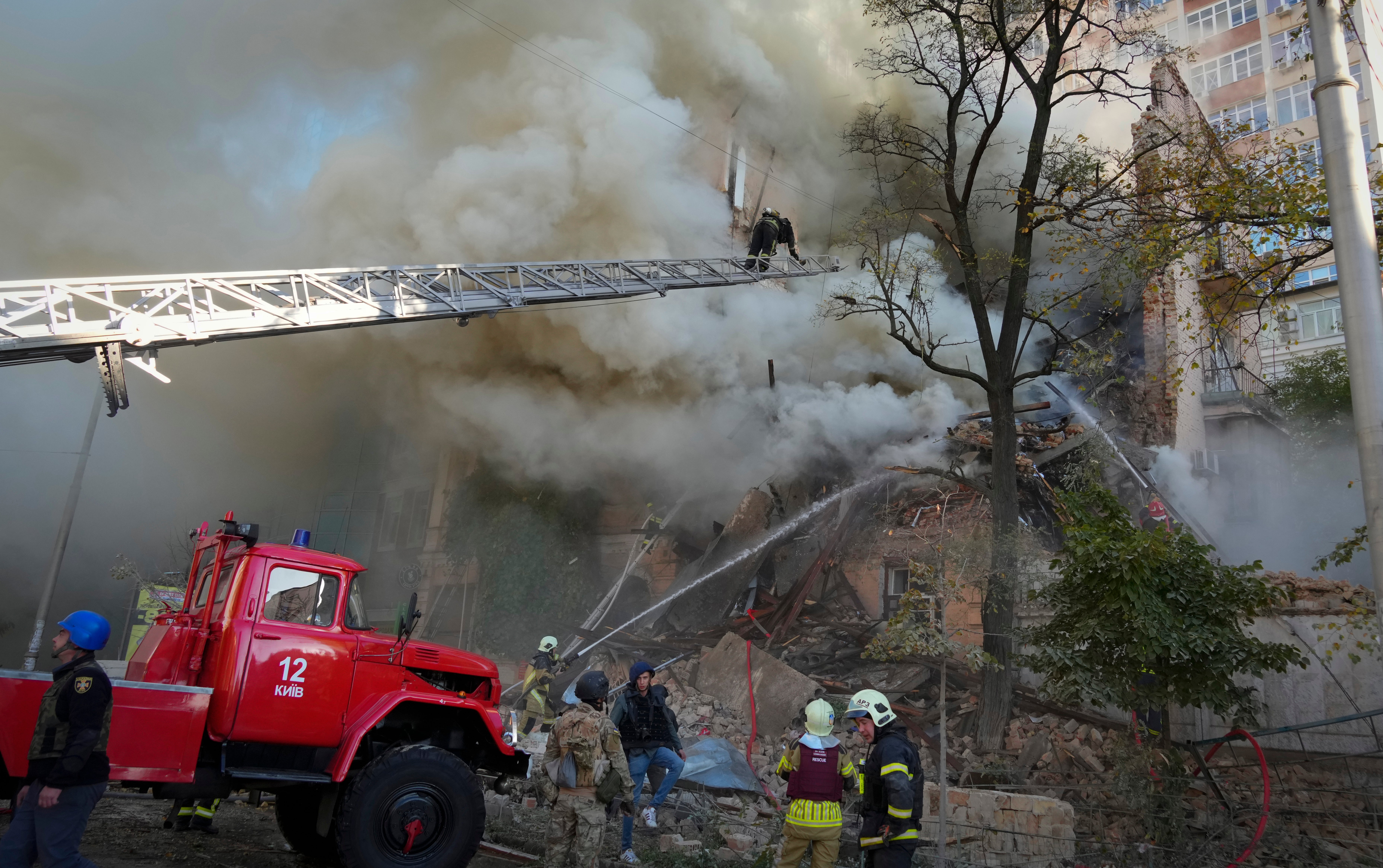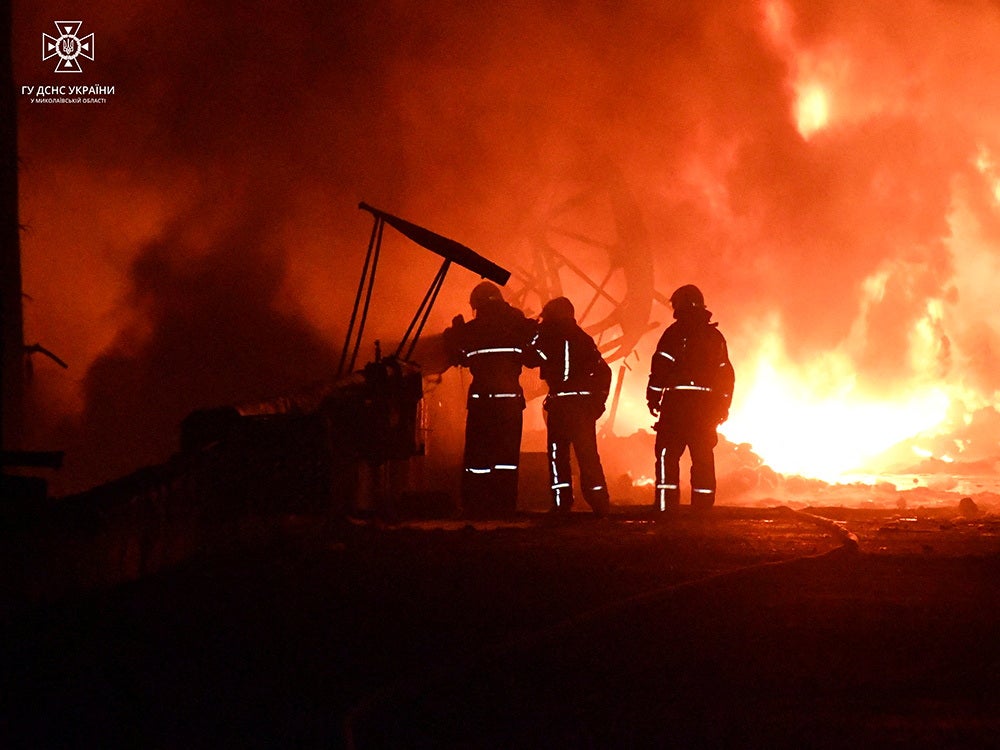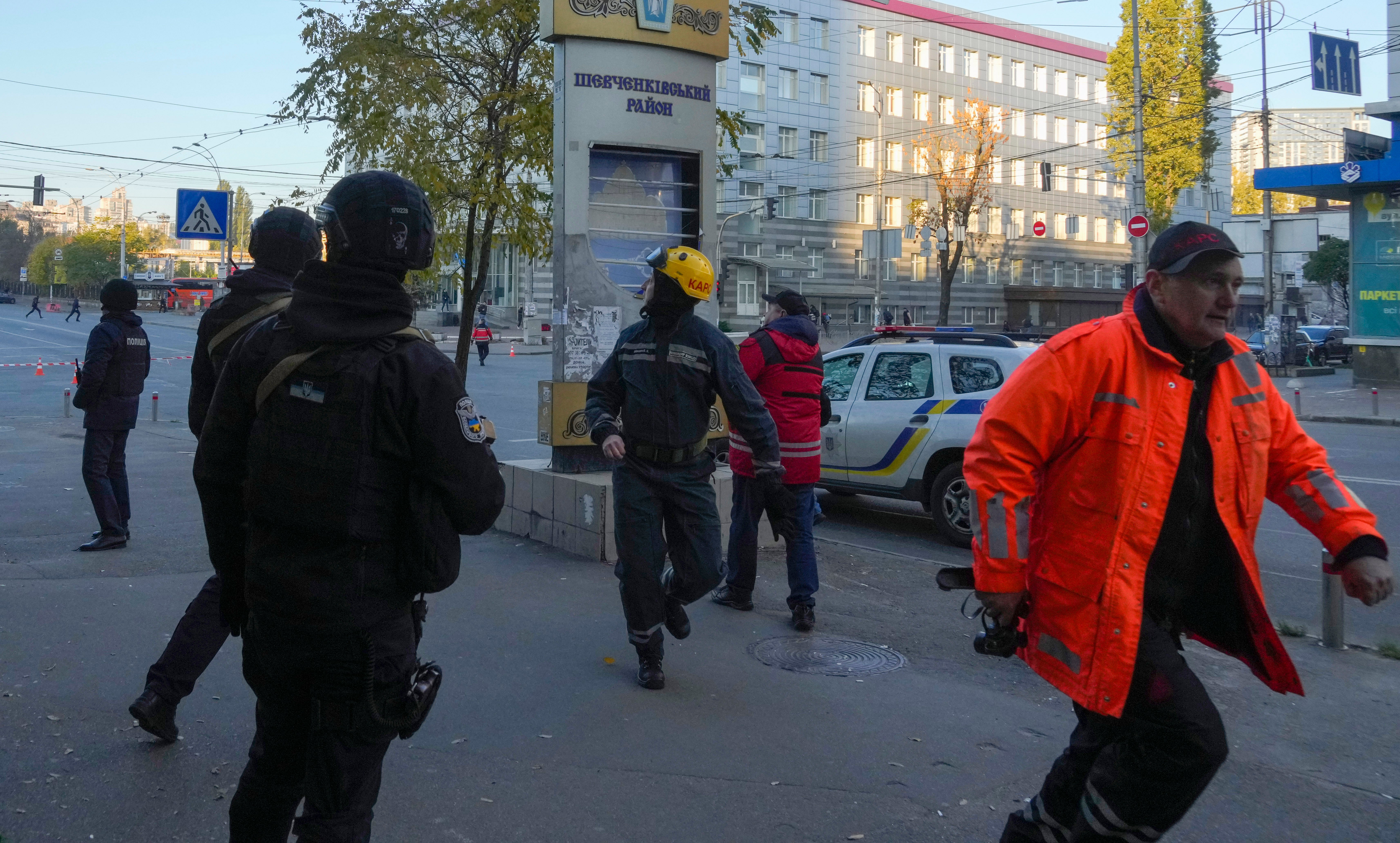Pregnant woman among those killed in Russian ‘kamikaze’ drone attack on Kyiv
America calls the attacks on Ukraine’s capital ‘desperate’
A young couple who were expecting their first baby were among those killed by Russian “kamikaze” drone strikes on the Ukrainian capital.
Anton Gerashchenko, a senior Ukrainian presidential adviser, said the family had died when a drone struck a residential apartment building. “Bohdan and Victoria, 34, were both found dead. It is reported they were expecting their first child in a few months,” he tweeted.
Four people died in the capital and several others were killed across the country following similar rush-hour drone attacks on other cities. Four explosions were heard across Kyiv, the second such Russian barrage in a week.
The city’s mayor, Vitali Klitschko, said a woman had been killed in the attacks and another person was trapped in rubble. He added that another 18 people had been rescued from a collapsed apartment building. “Everything that is happening [here] is terrorism,” he said. Ukraine’s prime minister, Denys Shmyhal, said that the drones had also struck an energy facility.
Black smoke poured out of the windows of one Kyiv apartment building, and residents told of narrow escapes in the immediate aftermath of the attack. “I have never been so afraid... it is murder, it is simply murder, there are no other words for it,” said Vitalii Dushevskiy, 29, a food delivery courier.
The US embassy in Kyiv condemned the attacks and called them “desperate and reprehensible”. Austria said the strikes represented an “escalation”.

Ukraine said the attacks were carried out by Iran-made “suicide drones”, which fly to their target and detonate. Russia’s defence ministry said it had carried out a “massive” attack on military targets and energy infrastructure across Ukraine using high-precision weapons.
It was not immediately clear how many drones had been fired in total, but authorities in Kyiv said they had successfully shot down 37 – or around 85 per cent – of the weapons, though other drones got through the city’s defences.
Videos on social media showed drones buzzing over the capital and smoke billowing in the early morning light. The sound of sustained gunfire could also be heard in one video, seemingly from an attempt to shoot down a drone.
The capital’s central Shevchenko district was among the areas hit, with apartment blocks damaged.

The drones are thought to be Iranian-made Shaheds, which Russia has rebranded as Geran-2 drones. They pack an explosive charge and can linger over targets before nosediving into them.
They are known as “kamikaze” drones because, unlike other such weapons, which are flown back to their starting point after dropping missiles, these drones are disposable.
Iran has previously denied providing Russia with weapons, although its Revolutionary Guard chief has boasted – without elaborating – about providing arms to the world’s top powers. Iran repeated its denial on Monday.
Russia has been using the drones in recent weeks to target urban areas, infrastructure and power stations. Strikes in central Kyiv had become a rarity in the past several months, after Russian forces failed to capture the capital at the beginning of the war.

Early morning strikes last week were the first explosions heard in Kyiv’s city centre in several months, and put the city as well as the rest of the country back on edge. Monday’s blasts seemed to indicate a further episode in what many fear could become a continuing pattern of attacks.
Kyiv appears to be in the crosshairs of Vladimir Putin following Russia’s apparent frustration over the bombing of a key bridge that connects Crimea with the Russian mainland.

EU foreign ministers agreed on Monday to set up a mission to train some 15,000 Ukrainian troops from next month and to provide an extra €500m (£432m) worth of funding for arms deliveries to Kyiv.
Join our commenting forum
Join thought-provoking conversations, follow other Independent readers and see their replies
Comments
Bookmark popover
Removed from bookmarks